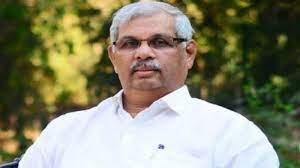Bihar Governor Approves Bill Raising Reservation from 50% to 65%
The recent approval by the Bihar Governor, extending reservations from 50% to 65%, marks a significant development in the state’s socio-political landscape. This decision, encapsulated in the approved bill, has stirred debates and discussions across various spheres due to its far-reaching implications.
The amendment in the reservation quota signifies a proactive step towards ensuring enhanced representation for marginalized communities in government jobs and educational institutions. By increasing reservation by 15%, the state aims to address historical inequalities and empower underrepresented sections of society.
This decision holds paramount importance, especially for aspirants preparing for various government exams, including civil services, teaching positions, police services, banking, railways, and more. Understanding the nuances and implications of such legislative changes is crucial for candidates aiming to excel in competitive exams conducted by the Bihar Public Service Commission (BPSC) and other recruiting bodies.
The move not only alters the dynamics of recruitment and admission processes but also prompts a deeper reflection on the ongoing discourse regarding equitable opportunities and inclusive growth in Bihar’s administrative and educational domains.

Why this News is Important:
Societal Impact and Equity Enhancement
The approval of the bill expanding reservations in Bihar from 50% to 65% holds profound significance for various sectors and aspirants preparing for government exams. This decision directly influences the representation of marginalized communities in educational institutions and government jobs, creating a more inclusive system.
Relevance for Competitive Exams
Understanding the implications of this change is crucial for aspirants aiming for government positions, including civil services, teaching, policing, banking, and others. It directly impacts the recruitment and admission processes, making it a pertinent topic for exam preparation.
Historical Context:
The history of reservations in India dates back to the inception of affirmative action policies, primarily aimed at providing equal opportunities for historically marginalized communities. The implementation of reservation quotas in educational institutions and government jobs was initially introduced to address social disparities and provide representation to Scheduled Castes (SC), Scheduled Tribes (ST), and Other Backward Classes (OBC).
Key Takeaways from “Bihar Governor Approves Bill Raising Reservation from 50% to 65%”
| Serial Number | Key Takeaway |
|---|---|
| 1. | Bihar Governor approved the bill raising reservation from 50% to 65%. |
| 2. | Aimed at enhancing representation for marginalized communities in government jobs and educational institutions. |
| 3. | Holds significance for aspirants preparing for government exams conducted by BPSC and other recruiting bodies. |
| 4. | Reflects a step towards addressing historical inequalities and promoting inclusive growth. |
| 5. | Has sparked debates on equitable opportunities and societal inclusion in Bihar. |
Important FAQs for Students from this News
Q: What does the approval of the bill raising reservation in Bihar mean?
A: The approval extends reservation quotas from 50% to 65%, aiming to provide increased opportunities for marginalized communities in government jobs and educational institutions.
Q: How does this decision affect aspirants preparing for competitive exams?
A: Aspirants preparing for various government exams, including civil services, teaching positions, police services, banking, etc., need to understand the implications as it directly influences recruitment processes and policies.
Q: What is the historical context of reservation policies in India?
A: Reservation policies in India were initiated to address social disparities and provide representation to Scheduled Castes (SC), Scheduled Tribes (ST), and Other Backward Classes (OBC).
Q: Why has the approval of this bill sparked debates?
A: The decision has prompted discussions on equitable opportunities and societal inclusion, raising concerns and debates on the dynamics of reservations and their impact.
Q: How does this change impact Bihar’s socio-political landscape?
A: This amendment signifies a proactive step towards inclusive growth and aims to address historical inequalities by enhancing representation for underrepresented communities.
Some Important Current Affairs Links


